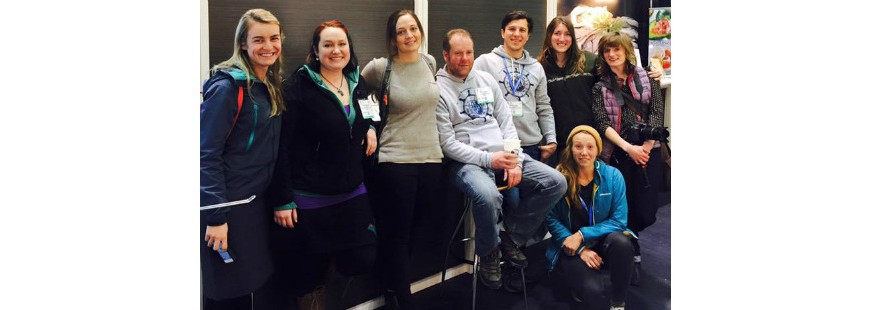If you were traveling with eleven young fishermen from more than eight different communities of Alaska, and each had diverse backgrounds in fishing and family, what would you expect to get from a trip like this?
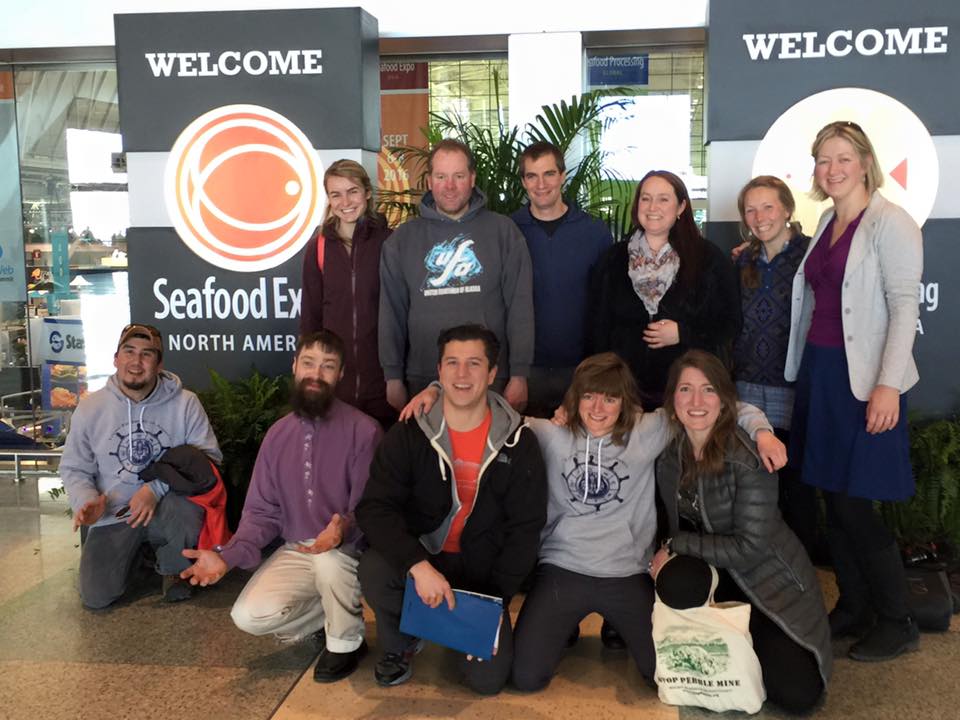
From top left: Claire Neaton (Homer), Matt Alward (Homer), Darren Platt (Kodiak), Hannah Heiimbuch (Homer/AMCC), Mili Vukich (Naknek), Kelly Harrell (AMCC). Bottom row: Michael Shangin (Port Heiden), Kiril Basargin (Razdolna/Homer), David Fleming (Anchorage), Elsa Sebastian (Sitka), Marissa Wilson (Cordova/Homer). Not pictured: Carina Nichols (Sitka).
We’re young, many of us already a generational fisherman, choosing to live just like our mothers and fathers and others choosing the life of their mentors and captains living amongst communities that pull their identities from the sea. But let’s not lie to ourselves, not all fishermen are equal, and not all involved in the fisheries are faced with the same moral obligations to our interaction with the wild. For something that is constantly giving, there is plenty to take away, but no resource is infinite.
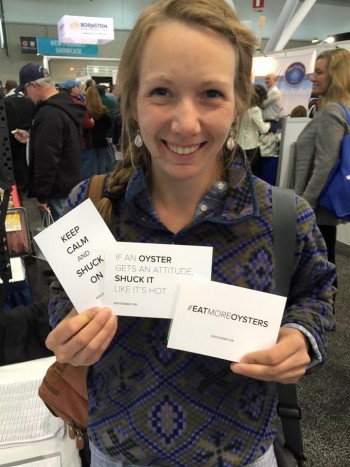
Bristol Bay fisherman, Mili Vukich, enjoys some of the marketing materials at the Boston Seafood Show.
I came to the conclusion of a definition of “sustainability” that I can agree with: something that takes, but also gives back. We say sustainable fisheries, sustainable this and that, but are we ourselves “sustainable?” Alaska Marine Conservation Council, along with the aid of many others, is supporting the next leaders of Alaska fisheries for these very reasons.
Our group came from different regions and fisheries. But with common desires and pursuits as young fishermen, we are giving tone to our voices. The first stop on our three-city trip was the Boston Seafood Expo 2016, where the big boys and girls are making mass commerce with all forms of seafood. Our regional processors were present with their showcases of salmon, halibut, cod, pollock, crab, and any other wild Alaskan sea creature you could think of.
While speaking with Julianne Curry, a prominent industry member from Petersburg who is on the Alaska Seafood Marketing Institute salmon committee, she said something that was pretty spot on with the impressions that the Expo left with us. She said, “Boston is a big eye-opener that it isn’t about us, it’s about how they present our fish.” And that can’t be more true.
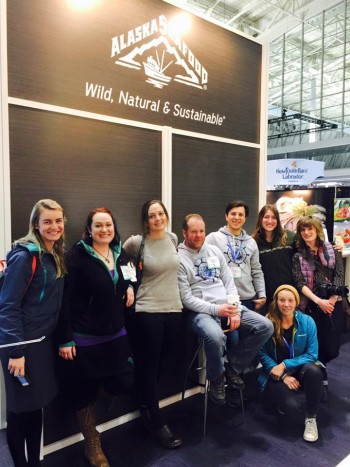
Fishermen from across Alaska on the Young Fishermen’s Educational Tour visit the ASMI booth at the Boston Seafood Show.
Walking past one of the Alaska fish processor booths one of our group members was appalled by how Alaska wild salmon was showcased in comparison to the farmed Atlantic salmon. Within the same booth too! She expressed how she took such good care of her fish and how she was outraged about the crusty, headless, old, dry frozen salmon being presented in the wild case with its neighbor farmed salmon looking moist, perfectly filleted, and presented with pride.
I myself couldn’t believe the amount of marketing dedicated to farmed fish, specifically salmon, within the Expo. It must have been a ratio of around 10:1, farmed to wild, but the emphasis on wild was difficult to find in the maze of farmed fish vendors. Once we had regrouped, mixed chatter resonated many similar concerns; that quality of fishing is just as important as quality of marketing.
But we didn’t furrow our eyebrows the whole three days in Boston. Other great conversations were carried as we met with young fishermen of east coast fisheries, slurped urchins and oysters with local seafood company, Red’s Best, and talked with members of the Cape Cod Fisheries Trust about fisheries access for our communities. There was a definite air of mutual respect between fishermen and amongst fishermen and fishery defenders.
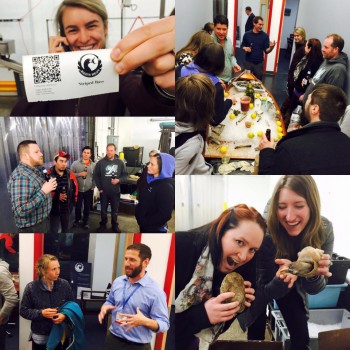
The group enjoyed getting to know more about local seafood business, Red’s Best, during a reception at their headquarters.
Though if I think about my greatest take-away from the three days in Boston, it would be the quick camaraderie and in-depth conversations that we are having with one another. It’s impressionable for me to be in a community with other young Alaskan folk who are equally passionate and willing to go the large strides it will take to protect our fishing culture and lifestyle and make positive changes in our regions. I’m proud to be associated with young people like this.
So with a head full of thoughts and opinions and experiences, we just landed in Washington D.C. for the next leg of our journey.
Thanks to sponsors of the Young Fishermen’s Educational Tour: Salmon Sisters, Edible Alaska, United Fishermen of Alaska, BulletProof Nets, United Cook Inlet Drift Association, Marine Fish Conservation Network and many AMCC members!
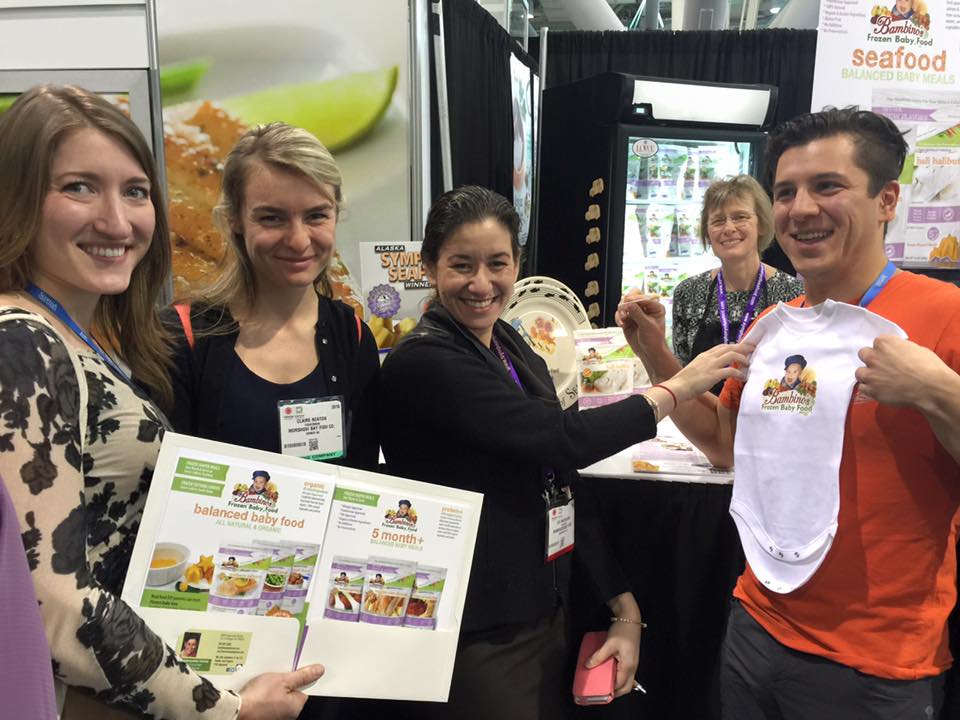
Young fishermen visit with the CEO of Bambino’s Baby Food, Zoi Maroudas-Tziolas, a Symphony of Seafood winner.
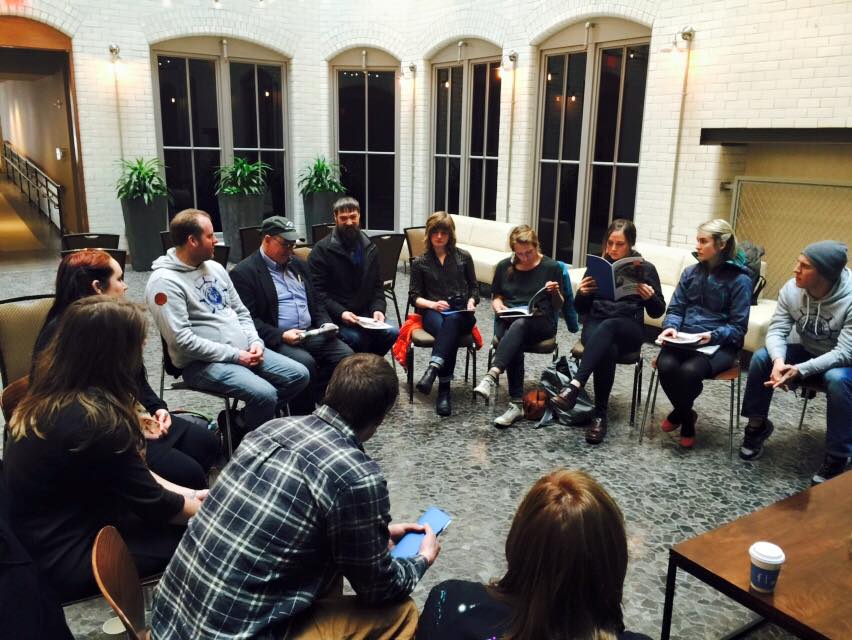
Young fishermen learn about fisheries access for communities, regional fisheries policy and mission-driven finance in Boston.
This post first appeared on the website of the Alaska Marine Conservation Council.

